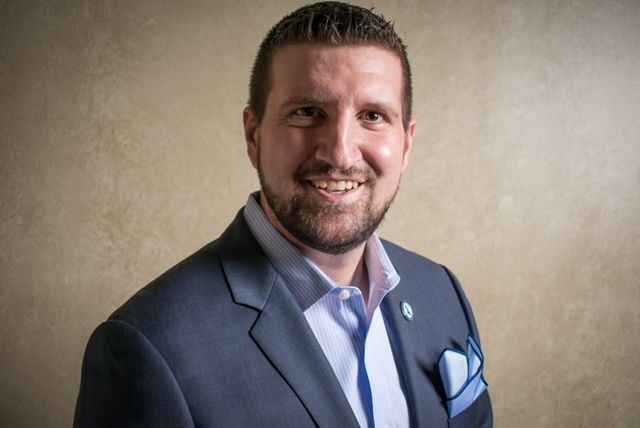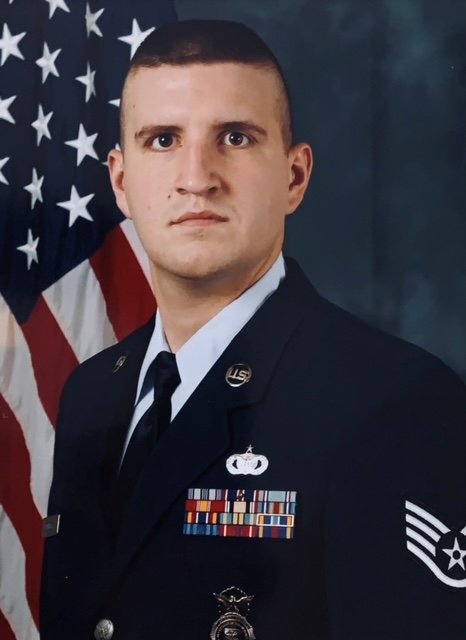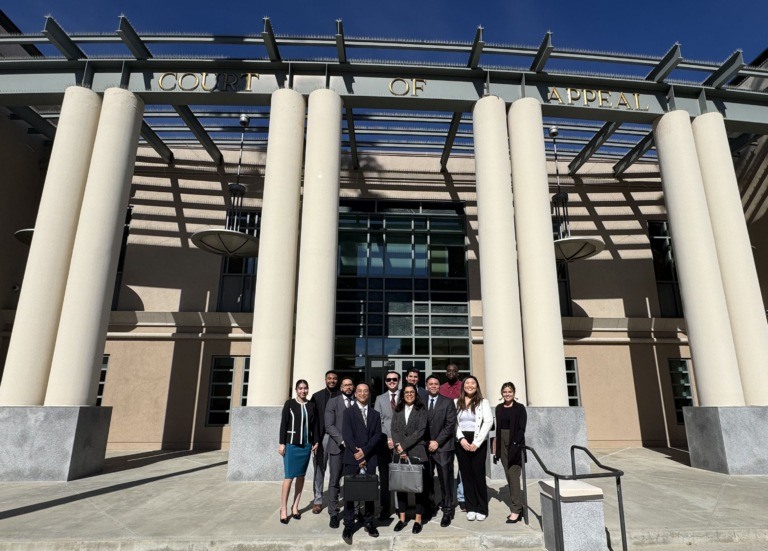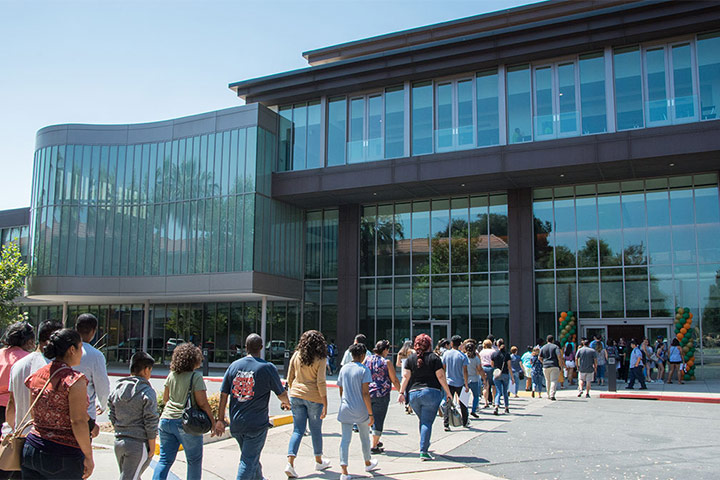Creating Teachers for the Leaders of Tomorrow

The University of La Verne’s Doctor of Public Administration program continues to elevate the careers of working professionals. Learn more about the program at our upcoming virtual information session, June 4 at 6pm. RSVP to join us here.
Returning to school after being immersed in a career comes with a set of unique challenges; hectic schedules with family and work can leave little time for additional schooling. Such was the case for Benjamin Effinger, a 3rd year doctoral student in the University of La Verne’s DPA program.
Effinger served as a military officer from 2002-2010. Just two years after his date of separation, Effinger and his wife made the move from Washington D.C., to California in pursuit of sunshine and advancing their education.
“I did the coast to coast move in the summer of 2012 and finished up my master’s degree the beginning of ’13,” Effinger said. “The focus was on getting situated in our careers.”
Effinger joked that since his wife was first to receive her doctorate degree, his competitiveness pushed him to follow suit. But his pursuit of higher education had to take a backseat as his blossoming career, growing family, and financial restrictions prevented him from focusing on yet another degree.
In late 2017, Effinger began looking into doctoral programs, but for the next three years, enrolling in a program felt like more of an aspiration than a possibility. It wasn’t until Effinger learned about the Montgomery GI Bill that he discovered an additional pot of funding for veterans. Suddenly, he was seriously considering his options for additional education.
The DPA program is phenomenal because it allows active practitioners in public service to expand their knowledge base in a way that they probably haven’t had before,” said Beaumaster. “The DPA program gives them a philosophical [and] theoretical foundation for why things are the way they are. Ben was clearly a focused student and had an attention to detail and desire to expand knowledge.
It wasn’t long before Effinger found the University of La Verne. He said that what distinguished the university’s DPA program from others was it’s in-person, cohort-based structure of learning. That, and the accommodations made readily-accessible to veterans.
“I started in the fall of 2020,” he said. “There’s only a handful of universities that have a Doctor of Public Administration program in the United States. In researching all of the different programs available to me, I was turned on by the way [the University of La Verne] position themselves to support the military community. They were a yellow ribbon accredited program, had a Vet Center and were very, very vet-centric. I didn’t have to go through all of the red tape to get my classroom accommodations set up. They just kind of made everything happen to make sure that I was going to be set up for success. That was the icing on the cake for me.”
As a combat veteran with PTSD, Effinger said that he is particular about his classroom setup. After a conversation with the program chair, he found that the DPA program team was more than happy to accommodate his seating preferences.
Effinger said he went in to the program with the intention of evolving existing literature about the public sector. His original application packet included a pitch that focused on customer service in local government. However, at the beginning of his second year, his soon-to-be-mentor and professor of public administration, Suzanne Beaumaster, would change the trajectory of his research.
Suzanne Beaumaster dedicated the last 26 years of her career to developing the minds of adult learners at the University of La Verne. According to her, Effinger brought in a treasure of working experience in the public health sector and an excitement do explore new career opportunities.
“The DPA program is phenomenal because it allows active practitioners in public service to expand their knowledge base in a way that they probably haven’t had before,” said Beaumaster. “The DPA program gives them a philosophical [and] theoretical foundation for why things are the way they are. Ben was clearly a focused student and had an attention to detail and desire to expand knowledge.”
Effinger’s work took a sharp turn after taking Beaumaster’s Ethics and Decision-Making Course. Beaumaster pulled Effinger aside and mentioned that while his current work was great, there was so much more passion and potential for him to change the public sector if he dove into research that interested him.
Effinger decided to focus on career outcomes in the public sector for veterans in Los Angeles county. His findings revealed something unexpected: somehow, Los Angeles county had a much higher percentage of veterans in local government and public policy positions.
“I did a paper on veteran hiring bias – pro and con – in local government,” he said. “In doing that is where I fell in love with my research topic. In LA County specifically, veterans are actually over-represented in senior and executive management positions.”

Effinger said that veterans made up 2% the population in Los Angeles county, yet represented nearly 4% of senior leadership in the local government.
When Effinger looked at counties surrounding Los Angeles, his research revealed that veterans in LA County are represented in senior leadership roles at a higher rate.
“There’s some sort of phenomenon happening here,” said Effinger. His new work focused on discovering whether or not LA County has better veteran’s preference policies to attract veteran candidates into lower-level positions and later climb to a higher rank in government, or if government agencies are simply doing a great job at recruiting veterans into senior level positions.
Effinger spent the last year fine-tuning and developing his research. “Why is LA County doing specifically well in this category?” he said. “What are some of the characteristics or traits that the veterans possess that make them successful in these roles? That’s the nut I’m trying to crack.”
This past March, Effinger attended the 2024 Veteran’s Society Conference to present his research. This national event brings together researchers and academics to share and discuss research in regards to veteran’s career outcomes and life post-active duty. Effinger attended the conference once before, but this was his first time presenting research of his own.
“I was given two tasks by my dissertation chair,” he said. “Present and get feedback, but also solicit members for my dissertation committee. At the end of my presentation, I put it out there that I was looking for committee members. I had five volunteers, including one that had authors a book that I was reading at the conference.”
Although Effinger admitted to being nervous to attend the conference, Beaumaster had faith that her student would do well. “I was very confident that he could get a paper accepted [and] get the feedback that would be really helpful for his research at a conference like that,” she said.
Beaumaster’s guidance is a prime example of how excellent tutelage and guidance prepares a brilliant mind for success. Effinger is set to graduate in May 2025, and his degree gives him the knowledge and experience to explore a number of career paths in veteran studies, like consultation and education about his research.
“My biggest praise for this program is the ability to support [students] on something that sounds like a hairbrained idea,” Effinger said. “When I began looking into this stuff, there was a big gap in the literature about veterans and local government.”
Effinger is creating the foundation for others to build on his research. “When we get graduates like Ben, the institution benefits greatly,” said Beaumaster. “Our doctoral program does something a PhD can never do, which is give career practitioners a doorway through which they can change their environment and expand the functionality of government for all of us. This is the student that we want. He’s going to go off and publish [his work]. He’s going to teach classes and [his] contribution gets exponentially expanded.”


